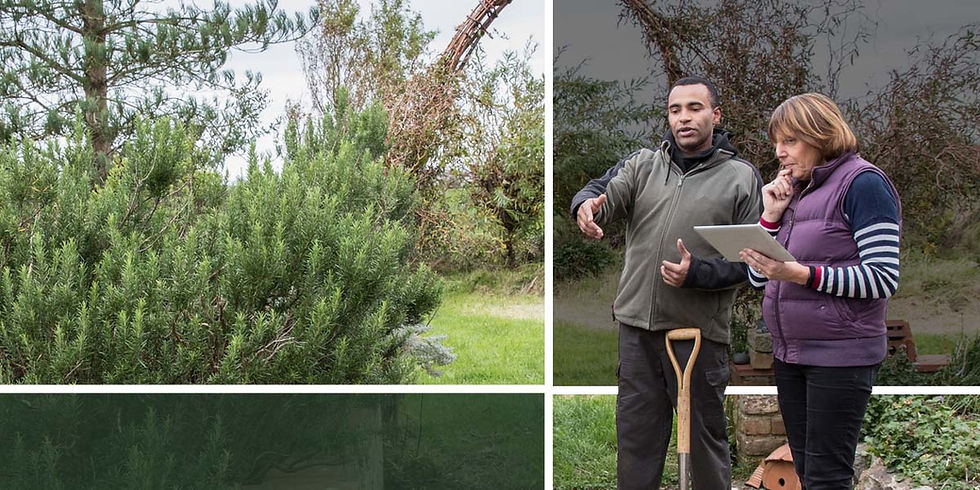5 Tips for Property Managers to keep your property looking TIP-TOP!
- Rooted in Nature

- Jan 9, 2022
- 2 min read
Updated: Apr 30, 2024
Winter is a challenging season for property managers. The ice, snow, salt, and grime can make it challenging to keep your property looking attractive, even for the most diligent property owners and community managers. But don’t give up! Here are some winter landscaping tips to keep your property’s grounds looking good—and to set yourself up for success once spring finally comes.

1. Know your zone
The U.S. Department of Agriculture publishes a climate map that can help you to select which plants are best for winter landscaping within your zone—as well as which plants will have a hard time thriving where you live. You can find out which of the eleven regions you’re in with the USDA Plant Hardiness Zone map.
2. Continue watering
Don’t neglect watering grass and shrubs. When the weather gets cold, we often stop maintaining landscaping features—but the need for water doesn’t go away just because the weather is cold. Failure to keep your fruit trees, lawns, and hedges hydrated over the winter can result in a host of issues, including increased susceptibility to disease. If the temperature is below 40 degrees, however, you’re off the hook for a day or two.
3. Keep raking
Everybody rakes in the fall, but it’s a good idea to keep on raking lawns and gardens over the winter as well. Plant debris continues to build up, and when it mixes with snow, the environment is conducive to mold and fungus, particularly where leaves have accumulated.
4. Cover thin-barked trees
Put a light-colored wrapping around younger trees with thin bark in sunny areas. This helps to control frost and prevents sun scald.
5. Fertilize lawns
Ideally, you’ll want to use a fertilizer rich in phosphorous, nitrogen, and potassium. Put it in the ground prior to the first freeze. This will help your lawn to grow rich and green in the spring, maximizing curb appeal (and minimizing work later on!).
6. Protect against road salt
Cover evergreen shrubs and small trees near high-traffic areas. Don’t over-apply road salt near tree roots unless it’s necessary to eliminate safety hazards.
7. Mulch garden & tree beds
Mulch is an excellent insulator and can help to protect roots against frost. If you have the storage space, the leaves you raked up in the fall will be perfect to use as mulch by the winter—and they’re completely organic (and free!).
8. Keep grass short
Cut your grass extra short as you head into winter—between 1 and 2 inches shorter than usual. This reduces frostbite risk and snow mold, and can also prevent mice from digging nests in the grass as cold weather approaches.
9. Add pots
Closely-trimmed boxwood trees in large pots can bring a hint of fresh greenery to walkways and entryways all year long in most climates.
10. Use lighting
Outdoor lighting can look especially beautiful in winter, even past the holiday season. Consider subtle tones to bring warmth to winter landscaping, or try lighting up walkways and driveways with attractive ground lanterns.
If you own or manage commercial properties in Maryland, you don't have to do it alone! Contact us at Rooted In Nature for more help at 443-846-0199 or info@rootedinnaturemd.com.



Comments